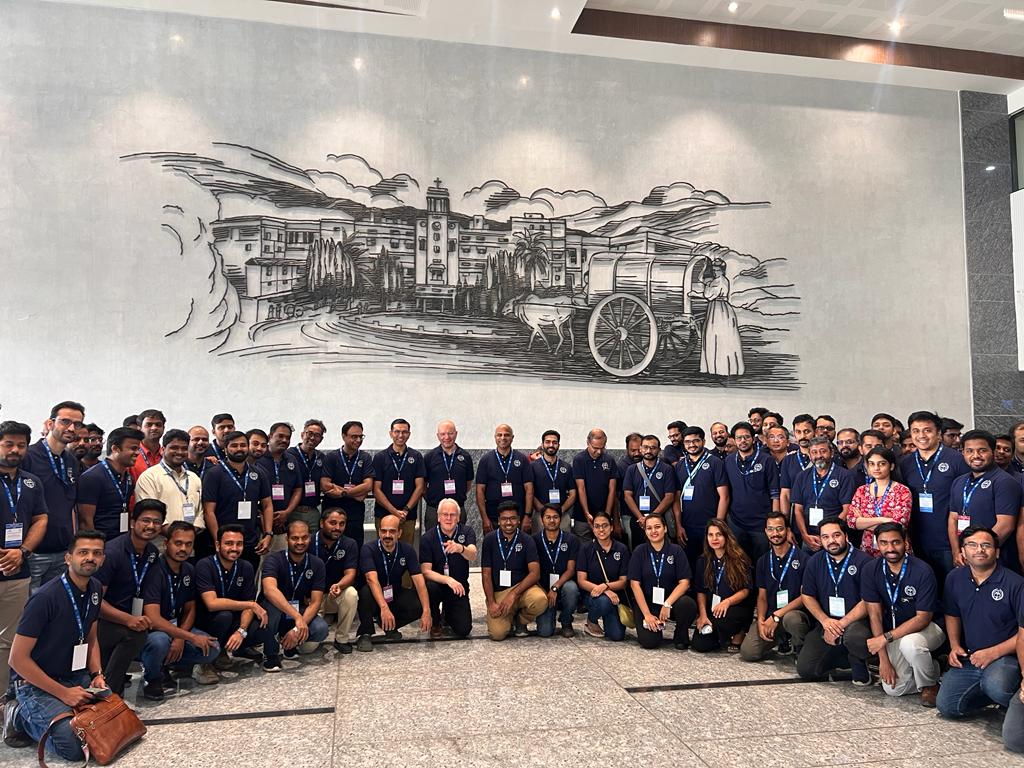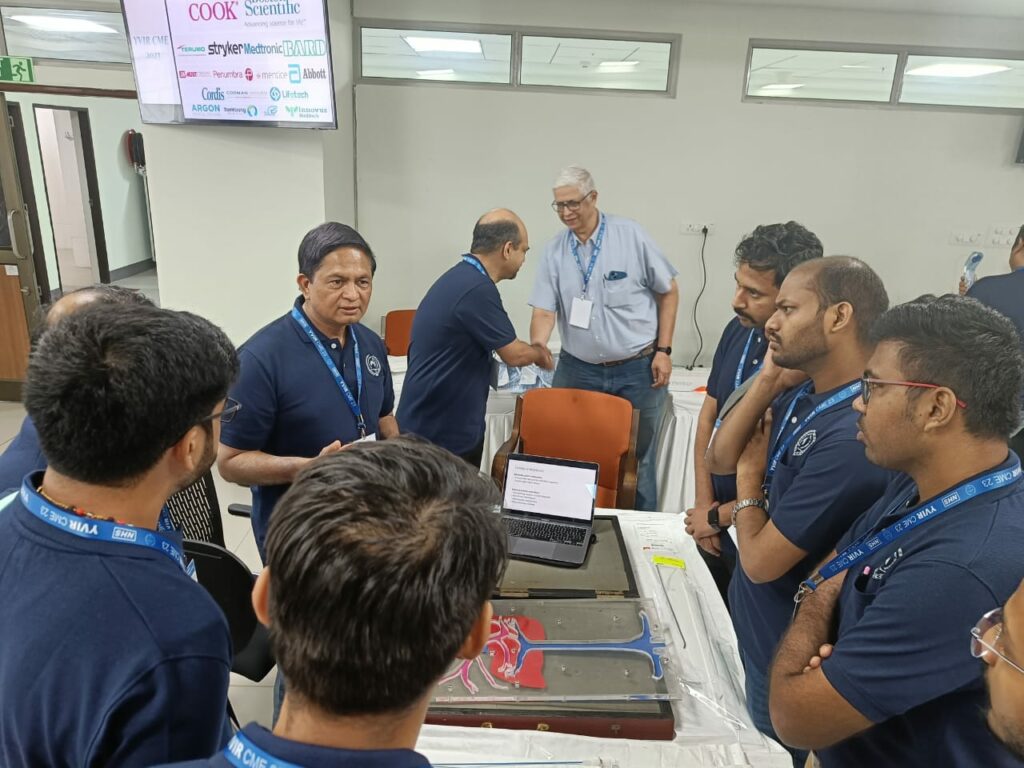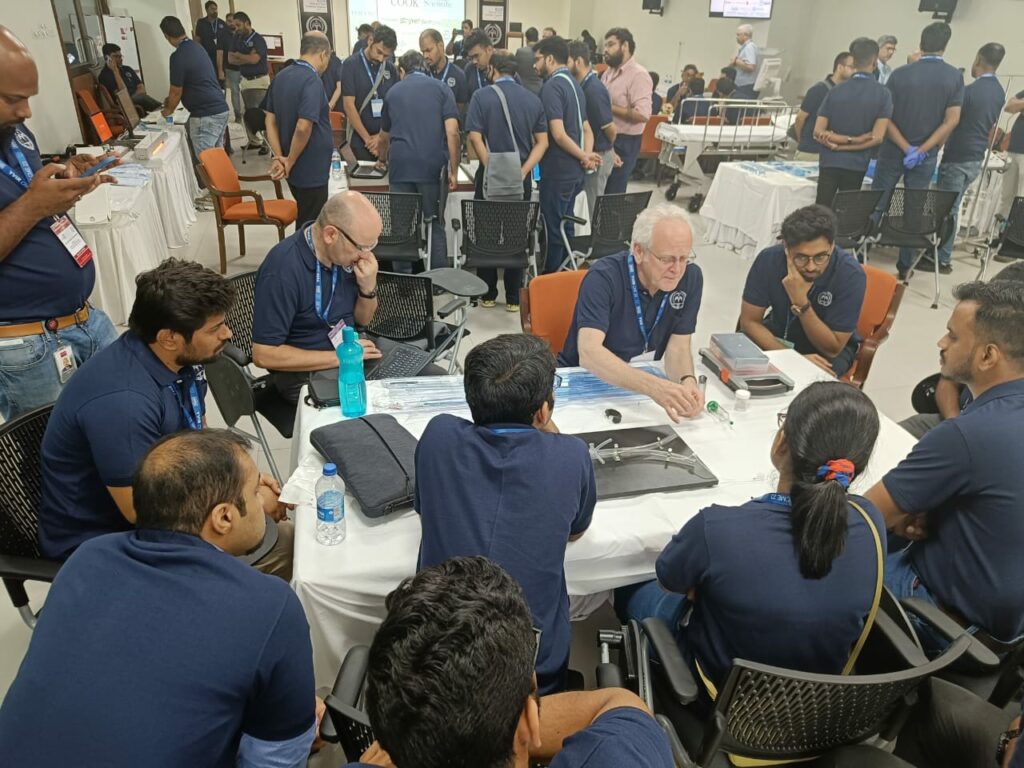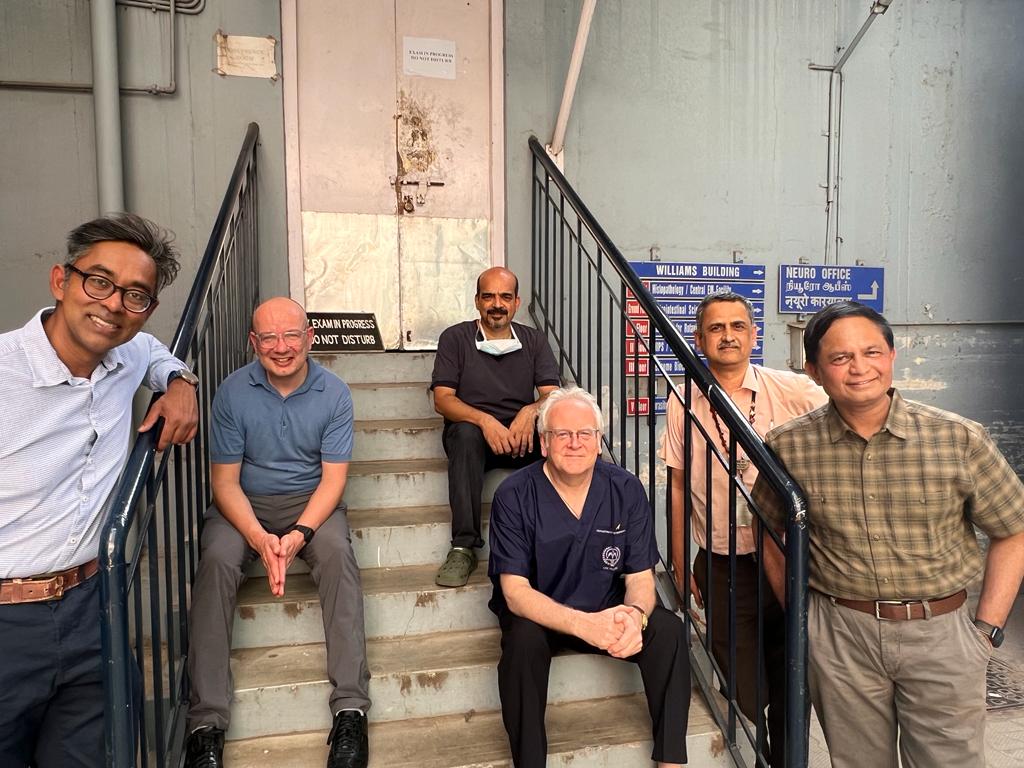In a significant collaboration, a team of IR consultants from the Trust and the Christian Medical College in Vellore recently led an Interventional Radiology (IR) advanced practice course on vascular interventions in India.
This pioneering initiative provided postgraduate trainees in IR with the opportunity to enhance their knowledge and skills in the field. The course marked a crucial milestone in advancing IR practices and fostering international cooperation in medical education between the two healthcare providers.
HUTH and CMC Vellore have a long and well-established relationship with teaching visits which began in 1998 to encourage further development of IR and higher studies in diagnostic imaging. Across India, IR is still a very new specialty and there is notable under provision of services except in major centres.

The need for specific training opportunities in IR is recognised and, following discussion and collaboration between the two organisations, plans were drawn up to run a teaching course for IR trainees with faculty from both centres.
Dr Vivek Shrivastava, Consultant Radiologist for HUTH said: “The collaboration between HUTH and CMC has been truly remarkable. This course serves as a testament to our shared commitment to advancing interventional radiology education and fostering global partnerships.
“The success of the course on vascular interventions demonstrates the growing importance of minimally invasive techniques in healthcare. By equipping trainees with the necessary skills and knowledge, we are empowering them to make a significant impact on patient care and treatment outcomes,” he added.
IR is a rapidly evolving field that employs minimally invasive techniques to diagnose and treat a wide range of medical conditions including stroke, pulmonary embolism and aortic aneurysms. It involves using image-guided procedures to perform therapeutic interventions within the body, eliminating or reducing the need for traditional open surgeries. The benefits of these techniques include reduced patient trauma, shorter hospital stays, quicker recovery times, and improved outcomes overall.

The collaboration between our Trust, which enjoys one of the best reputations in the UK for IR and the CMC brought together experts from both organisations, to facilitate the sharing of knowledge, expertise and best practices, to enrich the educational experience for participants.
Prof. Duncan Ettles, Consultant Radiologist at HUTH said: “The course marks an important milestone in our collaborative efforts to advance IR education. We carefully designed the course to encompass a wide range of body interventions, ensuring that trainees receive reasonably comprehensive training within the period.
He added that “By bringing together the expertise of HUTH and CMC, we aim to empower the next generation of interventional radiologists with the knowledge and skills necessary to provide exceptional patient care.”
The two-day course covered a wide range of procedures targeting different organ systems, including lectures, case-based discussions and workshops, ensuring a comprehensive and interactive learning environment.

Prof. Ettles delivered the inaugural Paterson Oration lecture titled ‘Interventional Radiology – past, present and future’ in the Senate hall of CMC Bagayam campus. The purpose of the lecture was to explain the origins and development of current IR practices and to look towards future potential challenges and improvements in interventional practice. The talk was streamed live on behalf of the Indian Society of Vascular & Interventional Radiology (ISVIR) and watched remotely in hospitals as far as Mumbai and Hull.
One of the distinguishing features of the course was its emphasis on practical training. The trainees had the opportunity to use state-of-the-art equipment and simulators, honing their procedural skills under the guidance of experienced consultants and faculty.
This hands-on experience allowed them to gain confidence in performing various IR procedures, including biopsies and drainage, peripheral angioplasty, vertebral interventions, angioplasty and more.
Professor Ettles continues: “As IR continues to evolve and expand in scope, initiatives like this course play a pivotal role in shaping the future of the field. By equipping trainees with the necessary knowledge and skills, such courses pave the way for advancements in patient care, research and innovation.”

